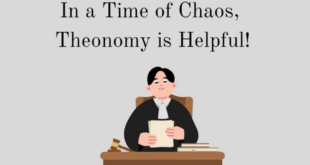The doctrine of Unconditional Election is extremely controversial in Christianity today. However, the true question is, is it biblical? If it is, what are the implications for our lives? The only thing that matters is whether or not we see it in the Bible- not what camp of belief we belong to (Arminianism, Calvinism, etc.). The true issue is believing the Bible and what it teaches, not a belief system. So follow the hyperlinks to the passages in the Bible, it is important for you to see it in Scripture, not dictated by someone. The following is a paper written for Belhaven University in 2023 (with some modifications for the online platform). This is part 2 of 2:
Where in Scripture is the concept of unconditional election seen? Too many passages could be referenced so, for the purpose of this discourse, we will focus on the pivotal and explicit passages. Ephesians 2:1-9 is perhaps the most all-encompassing passage that reveals the human condition and then God as the enacting agent to save His people for Himself. Scripture states that we were “dead in our trespasses and sins” (Ephesians 2:1 English Standard Version, repeated again in 2:5), siding with the evil forces of this world, and as a result, were “children of wrath…” (Ephesians 2:3 ESV). Unconditional election is a progression from the doctrine of total depravity- mankind is absolutely dead in their sins, unable to choose God (Romans 3:10-23, a universal indictment against rebellion). Jesus states, “No one can come to me unless the Father who sent me draws him…” (John 6:44 ESV). John 3:3,5 Jesus says that unless someone is born again they cannot see let alone enter the Kingdom of God.(12) Approaching the doctrine of unconditional election, one has to recognize that mankind is absolutely hopeless without God intervening for His people due to their deadness.(13)
Ephesians 2:1-9 pulls back the curtain on the real issues of the human condition. Mankind chooses according to their strongest desires, and those desires are so inclined to evil, it makes us “dead” to the things of God (Ephesians 2:1 ESV).(14) Yet what about the freedom to choose? Grudem observes that mankind is free to choose, but will always choose according to their strongest desires, which is always evil apart from God’s acting.(15) But by God’s grace alone He intervenes as the acting agent to rescue a people for His glorious grace (Ephesians 1:3-14). Without this, mankind would always be dead and hopeless. “But God, being rich in mercy, because of the great love with which he loved us, even when we were dead in our trespasses, made us alive together with Christ—by grace you have been saved…” (Ephesians 2:4-5 ESV). Grace is God’s acting on behalf of His undeserving people, not the other way around, as Paul states, “…by works of the law no human being will be justified in his sight” (Romans 3:20 ESV).
The doctrine of unconditional election is seen throughout the Old Testament Scripture. Adam and Eve were not outright destroyed for their rebellion and God provides the sacrifice to cover their sins (Genesis 2:17, 3:21). While all of the human race was in rebellion against God, God chooses Noah out of all the evil people to rescue him and his family from the destruction to come (Genesis 6:5-8). Abraham is called while living in foreign lands worshipping foreign gods (Joshua 24:2-3). Between Isaac and Ishmael, God states that it is through Isaac that His offspring will be traced (Romans 9:7, Genesis 21:12, where Ishmael is the older brother who would have naturally received the blessing). Between Jacob and Esau, God chooses the younger brother Jacob to be the lineage to carry His blessing and not based on anything they had done, whether good or evil (Genesis 25:23, Romans 9:10-13). Even before they were born, God states, “Jacob I loved, but Esau I hated” (Romans 9:13 ESV, conceptually from Malachi 1:2).(16) Moses was a murderer, and without doing anything to prompt God’s grace he was called by God to lead His people out of Egypt (Exodus 2:11-15, 3:1-12). 1 Samuel 16: 6-12 shows that there was nothing special about David to receive God’s grace to become king. Deuteronomy 7:7-8 states that it was not anything special about Israel that compelled Him to choose them apart from His loving kindness. The New Covenant promises that God is the acting agent in the New Covenant by taking out His people’s hearts of stone and giving them hearts of flesh, giving them a new Spirit, writing His law on their hearts (Ezekiel 36:22-32, Jeremiah 31:31-34).
The doctrine of unconditional election is seen throughout the New Testament as well. Jesus states explicitly to His disciples, “You did not choose me, but I chose you and appointed you that you should go and bear fruit” (John 15:16 ESV, emphasis added). If Jesus literally chose His disciples without their choosing Him, it would be implied that He does this for all of His people-why would God taking away their “freedom” to choose be any different than anyone else of God’s people? In Acts 9, Paul was on his way to Damascus while persecuting the Christian church, yet was confronted by Christ, a direct intervention on God’s behalf to convert essentially a Christian terrorist who had no interest in choosing God. In regard to Lydia’s conversion in Acts 16:14 ESV (emphasis added), the author says “The Lord opened her heart to pay attention to what was said by Paul.” It was not by her choosing or her ability that she listened to Paul, it was by God’s intervention. After Paul and Barnabas were debating with the Jewish people and stating that they would now turn to preach the Gospel to the Gentiles due to their hardness of hearts, Acts 13:48 ESV (emphasis added) states, “And when the Gentiles heard this, they began rejoicing and glorifying the word of the Lord, and as many as were appointed to eternal life believed.” The author did not have to explicitly write that verse in that way.(17) The people that were appointed to eternal life effectually believed, not by their choosing or intervention-it was God that appointed them to eternal life and the outcome was their belief, it was not their belief that produced eternal life. Paul writes to the church of Ephesus,
…even as he chose us in him before the foundation of the world, that we should be holy and blameless before him. In love he predestined us for adoption to himself as sons through Jesus Christ, according to the purpose of his will…” (Ephesians 1:4-5 ESV, emphasis added).
While discussing the people that will follow the Beast, John states in Revelation 13:8 ESV (emphasis added), “…all who dwell on earth will worship it, everyone whose name has not been written before the foundation of the world in the book of life of the Lamb who was slain.” This is explicitly stated that those who worship the Beast are those whose names were not written in the book of life, and that book was written from the foundation of the world. The evidence that supports the doctrine of unconditional election throughout Scripture is overwhelming, and for the sake of the length of this discourse, not every example can be examined.
But if God chooses to rescue one group of people and not another, how is God just? After Paul states that Jacob was chosen over Esau before they were born or had done anything good or evil, Paul anticipates this objection in Romans 9:14-16 ESV:
What shall we say then? Is there injustice on God’s part? By no means! For he says to Moses, “I will have mercy on whom I have mercy, and I will have compassion on whom I have compassion.” So then it depends not on human will or exertion, but on God, who has mercy.
Paul appeals to Exodus 33:19 to show that it is the very nature of God to have this power and right to choose to have mercy based on the nature of His name Yahweh (Exodus 33:18-19, as this contextually involves God’s glory being linked to His name). John Piper states, “If God ever surrendered the sovereignty of his freedom in dispensing his mercy, he would cease to be all-glorious, he would no longer be Yahweh, the God of the Bible.”(18) If all of mankind is completely rebellious and love everything other than God, for God to choose to give one group of people unconditional election and another group justice, no one receives injustice.(19) One merely receives grace based on God’s ability to choose according to Himself and His counsel (Ephesians 1:11-12), and the other receives wrath via God’s justice.(20) God is not unjust because He is upholding His glory by being free to choose based on Himself alone (Exodus 33:18-19), not based on people, their autonomy, or their merit.(21)
The doctrine of unconditional election has shaped my understanding of God immensely. For many years (just as it is for so many), this doctrine was so hard for me to grasp and swallow because I could not understand how God could act in this way. This was greatly influenced by my value of human autonomy and lack of reverence for the glory of God. Also, I was much more inclined to let my Christian theology be based on philosophical presuppositions rather than submitting to the authority of the Word of God. The doctrine of unconditional election puts mankind right where we belong-greatly humbled by the wonder and majesty of an infinitely holy God. The doctrine of unconditional election knocks the legs out from all boasting from our own strength, knowledge, perfection, etc., and puts the spotlight on God’s amazing grace and His amazing freedom to be an all-powerful God (Exodus 33:18-19; Ephesians 1:3-14, 2:1-9). Each time I come to study the doctrine of unconditional election, I’m refreshed anew and stand where Paul stands after his discourse on the electing purposes of God in Romans 11:33-36 ESV:
Oh, the depth of the riches and wisdom and knowledge of God! How unsearchable are his judgments and how inscrutable his ways! “For who has known the mind of the Lord, or who has been his counselor?” “Or who has given a gift to him that he might be repaid?” For from him and through him and to him are all things. To him be glory forever. Amen.
The effect the doctrine of unconditional election has had on my life and ministry has been incredible. In my personal life, this doctrine has affected me deeply in relation to God. Unconditional election is incredibly powerful in showing how small we are, how great our rebellion was, how undeserving God’s grace and love are, and how truly worthy of praise Christ is. In regard to my ministry, so often we are made to think that our ministry is based on our cunning ability and persuasiveness but fail to see that it is God Himself that converts sinners by using the vehicle of our preaching/witness. We tend to think that the latest fashionable Christian outreach tactics and antics are what convert sinners rather than seeing the Sovereign God that calls dead people back to life. This takes the weight off of my performance and intellectual abilities to merely answer the call to obey His great commission (Matthew 28:18-20). I will always be learning the lesson to be present and answer God’s calling for ministry, and yet get out of the way and stop relying on my performance to get His job done.
In conclusion, in the history of theology, one of the most controversial doctrines is unconditional election. This is not necessary. If we can genuinely look to Scripture and submit to its authority for what it speaks on the matter, perhaps we can begin to not only submit to this teaching but move to cherishing the doctrine and even praising God for it. The purpose of this address is to define what the doctrine of unconditional election is, speak to the importance of this teaching, discuss what Scripture teaches about this doctrine, examine how this doctrine has shaped my understanding of God, and finally, discuss how this doctrine has shaped my life and ministry. This doctrine has truly become a cherished teaching for me, and I pray that it will prove to be for others I minister to also.
Footnotes
- R.C. Sproul, “What Does it Mean To Be Born Again?” accessed July 17, 2023, https://www.youtube.com/watch?v=pVi3jJMeeyQ&t=1053s
- Third Millenium, “We Believe in The Holy Spirit Lesson Four: In The Believer.”
- Grudem, Systematic Theology: An Introduction to Biblical Doctrine, 829-830.
- Grudem, Systematic Theology: An Introduction to Biblical Doctrine, 829-830.
- John Piper, “God’s Word Stands: Not All Israel is Israel Part 2,” accessed July 17, 2023, https://www.desiringgod.org/messages/gods-word-stands-part-2
- Piper, “TULIP Session 4: Total Depravity-Unconditional Election.”
- Piper, “I Will Be Gracious To Whom I Will Be Gracious.”
- R.C. Sproul, “What is Reformed Theology? with R.C. Sproul: Unconditional Election,” accessed July 13, 2023, https://www.youtube.com/watch?v=mg42ZdLOdyI
- Sproul, “What is Reformed Theology? with R.C. Sproul: Unconditional Election.”
- Piper, “I Will Be Gracious To Whom I Will Be Gracious.”
Bibliography
Britannica, T. Editors of Encyclopaedia, “Encyclopedia Britannica: Arminianism,”
accessed July 7, 2023, https://www.britannica.com/topic/Arminianism
Britannica, T. Editors of Encyclopaedia, “Encyclopedia Britannica: Pelagianism,”
accessed July 7, 2023, https://www.britannica.com/topic/Pelagianism
Britannica, T. Editors of Encyclopaedia, “Encyclopedia Britannica: semi-Pelagianism,”
accessed July 7, 2023, https://www.britannica.com/topic/semi-Pelagianism
Frame, John, Systematic Theology: An Introduction to Christian Belief, (New Jersey, P&R
Publishing Company, 2013).
Grudem, Wayne, Systematic Theology: An Introduction to Biblical Doctrine, 2nd ed., (Michigan,
Zondervan, 2020).
Piper, John, “God’s Word Stands: Not All Israel is Israel Part 2,” accessed July 17, 2023,
https://www.desiringgod.org/messages/gods-word-stands-part-2
Piper, John, “I Will Be Gracious To Whom I Will Be Gracious,” accessed July 7, 2023.
https://www.desiringgod.org/messages/i-will-be-gracious-to-whom-
i-will-be-gracious
Piper, John, “TULIP Session 4: Total Depravity-Unconditional Election,” accessed July 10,
2023, https://www.desiringgod.org/messages/total-depravity-unconditional-
election-session-4
Sproul, R.C., “What Does it Mean To Be Born Again?” accessed July 17, 2023,
https://www.youtube.com/watch?v=pVi3jJMeeyQ&t=1053s
Sproul, R. C., “What is Reformed Theology? with R.C. Sproul: Unconditional Election,”
accessed July 13, 2023, https://www.youtube.com/watch?v=mg42ZdLOdyI
Third Millenium, “We Believe in The Holy Spirit Lesson Four: In The Believer,” accessed July
10, 2023, https://thirdmill.org/seminary/lesson.asp/vid/242
 Getting Job-ed
Getting Job-ed


